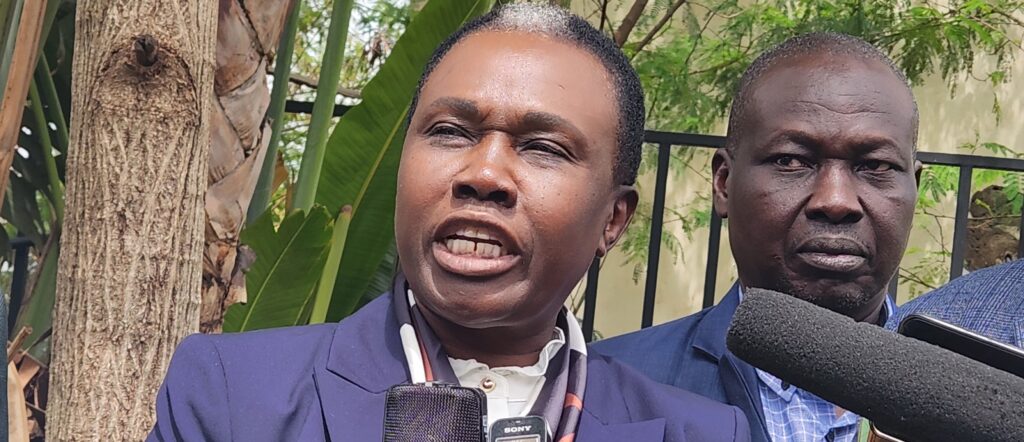Interior Minister Angelina Teny said Monday that South Sudan has a huge number of people at risk of being rendered stateless because of the influx of refugees, returnees and the internally displaced persons.
Addressing reporters at the Juba International Airport after attending an annual meeting for the Executive Committee of UNHCR in Geneva, Switzerland, Teny said the meeting sought to address the crisis and the protection of refugees, the internally displaced and the returnees.
“This year, the special focus was on statelessness and how to protect those who are at risk of statelessness. Our country is one of those that have a very big number of people at risk of statelessness,” Teny said
“We focused on how to deal with the pledges that we undertook last year when we went to the global refugee forum, and one of the pledges was the protection of refugees, the internally displaced and all groups at risk. It was also about service delivery to those groups and the host communities and the integration. The idea is to integrate them into the host communities and the host communities to become beneficiaries,” she explained.
The Interior Minister said they also held side meetings on the Sudan crisis and how to respond to it in South Sudan, adding that they had a side meeting on the IDPs as South Sudan has their large population. In addition, they had side meetings with UNHCR Commissioner Filippo Grandi, which addressed the integration, service delivery and the protection of refugees, the returnees and IDPs.
South Sudan, she said, was promised support in dealing with refugees, but particularly they want to be in the executive committee of UNHCR as it hosts a huge number of refugees, returnees and IDPs.
“We are still holders of an observer status. We also discussed how we could become a permanent member of the executive committee because we receive huge numbers of refugees, IDPs and returnees. We really need to be part of the planning and the decision to be host,” he explained.
Teny disclosed that the Interior Ministry had embarked on a massive registration of the displaced persons, including addressing statelessness.
“We have started with the Commission for Refugee Affairs, the registration, identity or electronic readable identity for those who were returnees, and the refugees coming to our country. The first step is to ensure that every citizen is registered at birth, on marriage and at death. We have a strategic plan for the whole country,” she explained.
The Minister also said they had plans to integrate the refugees into the host communities as part of the durable solution.
“When you go to Ruweng Area in Jamjang Refugee Camp, you will find the host communities and the refugees living together. They were cultivating together and so that approach is being looked into,” she said
“We want to use it elsewhere like in Western Equatoria where we have camps. In Juba, we have Gorom, and in Upper Nile Malakal, we have Maban. We also have many urban refugees and returnees and IDPs because they enter the normal schools and are not segregated against. They use the same health services, which is not the case in many other countries despite the fact that we have challenges,” he added.




